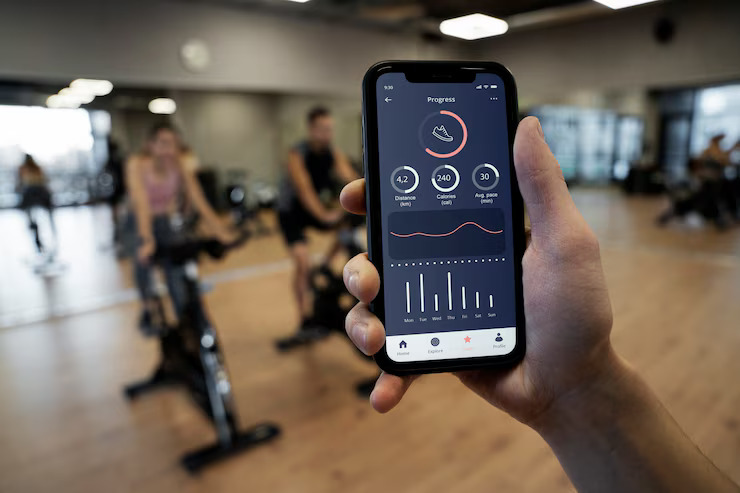Communicating with your clients probably seems pretty straightforward.
After all, you’ve spent your entire life having in-person conversations, corresponding over eMails, interacting through phone calls, connecting through text messages and more recently leveraging Video calls too.
But client communication is different.
Communicating with a client isn’t just any exchange of information.
This is a critical interaction with one of the primary stakeholders in your business and probably the only stakeholder that truly matters for the success of your business.
The benefits of treating these interactions with intentionality and care are endless….
- Building Trust,
- Helping Clients Get Results,
- More Testimonials,
- New Referrals,
- A Stronger Community,
- Increased client lifetime value,
- Higher Profitability, etc,
Now that you know what’s to be gained from client communication excellence, let’s look at a few tools to help you build a world-class client communication process.
Tools that we believe should even be the cornerstone of the culture you want to build in your business.

fitDEGREE can support your Studio Fitness
Active Listening
You’re probably familiar with the phrase, “Sometimes, a person just needs to feel heard.” And it’s true - nobody likes to feel like they’ve been ignored. While listening is a generally adopted practice, it doesn’t give you the same benefits of active listening.
Active listening creates a positive interaction between you and the other party that keeps you engaged in the conversation.
If you’ve ever been in a conversation where the other person made you feel like he or she was very engaged and excited to be part of that conversation, that person was probably using active listening.
Put It Into Action
- Remove Distractions: Simply putting your phone down will foster a stronger connection in your conversation.
- Be Attentive: This person should consume all of your attention during the conversation.
- Exercise Compassion: Seeking to genuinely understand should always be the priority.
- Seek Clarity: Be sure to ask for clarification when necessary. Not only will it strengthen your understanding of the information, but it will also show you are actively engaged in the conversation.
- Reflect: Share your perspective only after your client has finished sharing and you’ve had time to reflect on what was communicated to you.
Bonus Tip:
Putting in effort to get some contextual information about your customer - their background, their experiences and their beliefs systems goes a long long way in helping you understand their perspective.
Consistent Touchpoints
Without a consistent and regular cadence of interactions, your clients have no way to build trust with your business. Sure, they see the coach who teaches their weekly class or the Instructor that runs their Thursday session, but don’t confuse the trust they’re building with your employees as trust they’re building with your business.
Having accelerated trust in your communication with clients makes it easier for them to talk to you about concerns and helps them credit you with the benefit of the doubt.
Put It Into Action
- Recognition: Greet clients as they walk in using their names, celebrate their wins (both in and outside of the studio) and even have personal reach-outs such as client anniversaries or even kids birthdays.
- Identify At-Risk: Have a process for checking in with clients who haven’t shown up in your studio in over seven days and in a gym-setting, clients that haven’t been coming in 8 times over a month
- Outreach Frequency: Set a rule such that no client goes longer than seven days without a touchpoint through any of the channels - text, email, phone or even a high-five in person
Bonus Tip:
It’s imperative to have an extremely well-laid out onboarding process so that all your clients have a consistent experience irrespective of the coach, session and class they take.

Collaborative Conversation
Dominating the interaction can be off-putting and diminishes the other person’s desire to continue the conversation.
A collaborative approach, on the other hand, paves the way for effortless and positive communication. You both have skin in the game and both are taking part in the direction of where that conversation is headed.
Put It Into Action
- Encourage Collaboration: Ask open-ended questions, seek clarification, request their opinion and give them space...Anything that makes them an active participant in the conversation.
- Be Inclusive: It might be difficult for members of some cultures and those with less fluency in the ‘official’ language to engage. So, you need to be mindful of that as well as the language and choice of words you use to draw out a conversation.
- Strategy Sessions: Have periodic check in sessions so that you are always aware of what matters most to your client during that time.
Bonus Tip:
Creating good notes (that are easily accessible by all) on prior conversations that act like memory banks can help tremendously in building long-term relationships and trust between the client and your business.
Client-Centric
Becoming a client-centric business is something that many aspire to, but few actually reach. The reason? It’s not without effort. Simply put, it’s just a lot harder to pull off than it sounds like.
Most business owners already see themselves as client-centric. It can be a challenge to dedicate time and resources to a problem you don’t think you have… But that would be a mistake.
Every aspect of your business improves when you shift to a client-centric approach and communication is no exception.
Client-centric communication ensures that communication between the client and business is predominantly focused on the client. People tend to want to be part of conversations that involve them, their needs, their desires, and their challenges… In other words, make it about them.
Put It Into Action
- Hiring: Right from the outset, make sure you are bringing onboard team members that believe in the doctrine of customer delight
- Training: Train your team, business partners, and yourself often to always ask this question: “Are we focused on us or the client?” and start fixing the inconsistencies
- Customer Feedback: It seems obvious but one needs to communicate frequently with your clients to get their feedback, track your performance and ways to better the overall customer experience
Bonus Tip:
Most high performing businesses even tie a portion of employee compensation to the overall customer experience measured primarily through retention and frequency of visits.

As health and wellness business owners, client communication is not something to be flippant about. Excellent client communication can still help you stand out and make a difference in the lives of your clients.
The four tools outlined in this article can be adopted by anyone and, when given intentionality and attention, can be developed into lifelong skills that will benefit your business and your team for years to come.













.jpg)












.jpg)










.jpg)










































.jpg)





























